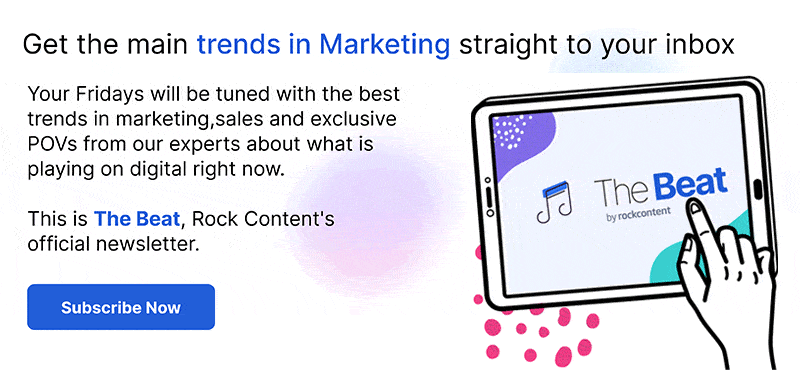We love Google. And, as a marketer and tech-savvy professional, I can’t live without asking Google everything that crosses my mind. I know, the internet is not always the best source of information — but it’s so fast and easy that it is almost impossible not to use it.
The problem is when we get too comfortable with the single info of our SERP without double-checking the information. We read what an algorithm thinks is useful for us. As a consequence, we become more prone to fall into implicit bias, half-truths, or misinformation.
Is Google and their SERP leading to more bias? In this article, we will see how this algorithm, when not used correctly, can reinforce our unconscious bias (and what our responsibility is, as marketers, SEO professionals, and content producers).
What is an implicit bias?
According to perception.org, implicit bias describes attitudes toward people or associates stereotypes without being completely conscious of it. Some examples of it are associating criminality with black people or weakness with femininity without noticing it.
Those biases can be positive or negative and can come from any kind of person. However, individuals are more than stereotypes, and sometimes they don’t reflect the nuances of being human.
It is necessary to highlight that gender is not the only thing that can trigger an unconscious bias. Other can include:
- Race
- Religion
- Political ideology
- Age
- Social classes
- Nationality
And yeah, we can see how stereotypes are affecting Marketing efforts, even nowadays. Let’s dive into that.
What do Search Engines have to do in this issue?
The other day I was looking for a stock image of a president (a female president). For me, it was very curious how the main result was male presidents. I had to specify I was looking for a president that was a woman.
On the other hand, when I typed “hairdresser” into the search engine I got mostly images of women on the results page.
That’s what I’m trying to explain when talking about how these biases are present in our daily lives. Even in a simple Google search.
This concern about how SERP reinforces biases is not new. In 2013, the UN Women released a campaign called “The Autocomplete Truth” which showed how the autocomplete feature suggested some stereotypical ideas.
On the other hand, the writer Safiya Noble, in her book Algorithms of Oppression shows and criticizes how search engines play an important role in reinforcing stereotypes.
Among all of these, the author speaks about how Google has a history of racism. In a brief example, she showed the results appearing when you type “professional hairstyle” related to white women with straight hair and the “unprofessional hairstyle” related to Afro or black women.
In recent research using word embeddings trained on massive internet text corpora, words representing the concept of “people” (e.g., “somebody” or “human”) were more likely to occur with terms for “men” than for “women”—a demonstration of the male-default bias collectively displayed across individuals in a society.
Unconscious Bias and Marketing Decisions
As I said before, bias is everywhere. Including our Marketing approaches. Even some experts admit that biases can drive us to be bad marketers. This is proof of how our minds can play against us, and lead to losing conversions.
However, there are some companies that are trying to fight this common disbelief and are actually receiving good benefits from it.
An easy example. According to Facebook Data, in Brazil, at least 85% of ads coming from the auto parts industry include only men in protagonist roles. In an attempt to bring more diversity to ads, Jeep in Brazil decided to display both women and men as they enjoyed the adventure in one of their new cars.
The campaign actually had good results, increasing 28 points on brand recall among the ads that displayed both genders.
Another good initiative was taken by Pinterest, where the algorithm seeks to bring more diversity to its searches. Google itself has acknowledged the power of words and released an inclusive language tool that seeks to deem some gendered focus terms. For example, when you type “policeman” the engine will suggest “police officer” instead.
Although, in previous cases, we are talking about social media and more human decision-making. When it comes to SERP, we have other factors, such as artificial intelligence and algorithms.
The sad thing about this is that data and technology can be racist. This may sound very paradoxical since both are supposed to be objective and exact sciences.
However, let’s remember that data and technology are built by humans, and they are also susceptible to their own bias, even when they are building artificial intelligence.
As the author of the Search Engine Journal, Carolyn Lyden, said: “Algorithms and machine learning are only as good as the information we feed these models”.
Luckily, as marketers, we have the power to change our own minds, detect our prejudices, and take action on it. If we detect our own biases, we can perceive when something is just a stereotype and doesn’t represent reality.
How to Decrease the Bias
It is not easy to fight an algorithm, even though Google has tried to reduce the biases in the SERP, there is still a long way to go before we have a bias free technology.
But there’s one thing or two that we can do to make it better — after all, we are the ones providing content to these algorithms. Check the main tips below:
First of all, start with yourself
Let’s make something clear: having a bias doesn’t make us a bad person, but we should be more committed to recognizing our prejudice. Next time you find yourself giving a stereotype to one person, think “Why am I thinking this”, or “Is this true?”
Consider that no one can be reduced to a stereotype. Every person is full of nuances, personality traits, and diverse backgrounds.
When making a search (or surfing for information) always try to collect from diverse sources. Try to step out of your filter bubble and make sure there are no racist or sexist ideas in the content you are receiving.
Make your content inclusive
Remember that algorithm and machine learning acts on the information we are giving to it. Sadly, I am not a Google Engineer, so I can not directly work to improve the SERP algorithm.
However, as content creators, there are a lot of things we can do to make the internet a more inclusive place. A good place to start can be our own language. Communicating inclusively may reduce gender suppositions and exclusions.
Also, analyze how you are representing diversity in your own images. Are they showing diversity correctly? Are you reinforcing stereotypes in your visual communication?
Don’t forget that a leader can have any gender, ethnicity, or nationality. Try to represent these nuances whenever you can.
Sadly, we still live in a very unequal world, and it is going to be hundreds of years until we can talk about real equity. However, we must keep our hopes up, and take seriously our role as mind-shapers.
Do you want to continue to be updated with Marketing best practices? I strongly suggest that you subscribe to The Beat, Rock Content’s interactive newsletter. There, you’ll find all the trends that matter in the Digital Marketing landscape. See you there!








